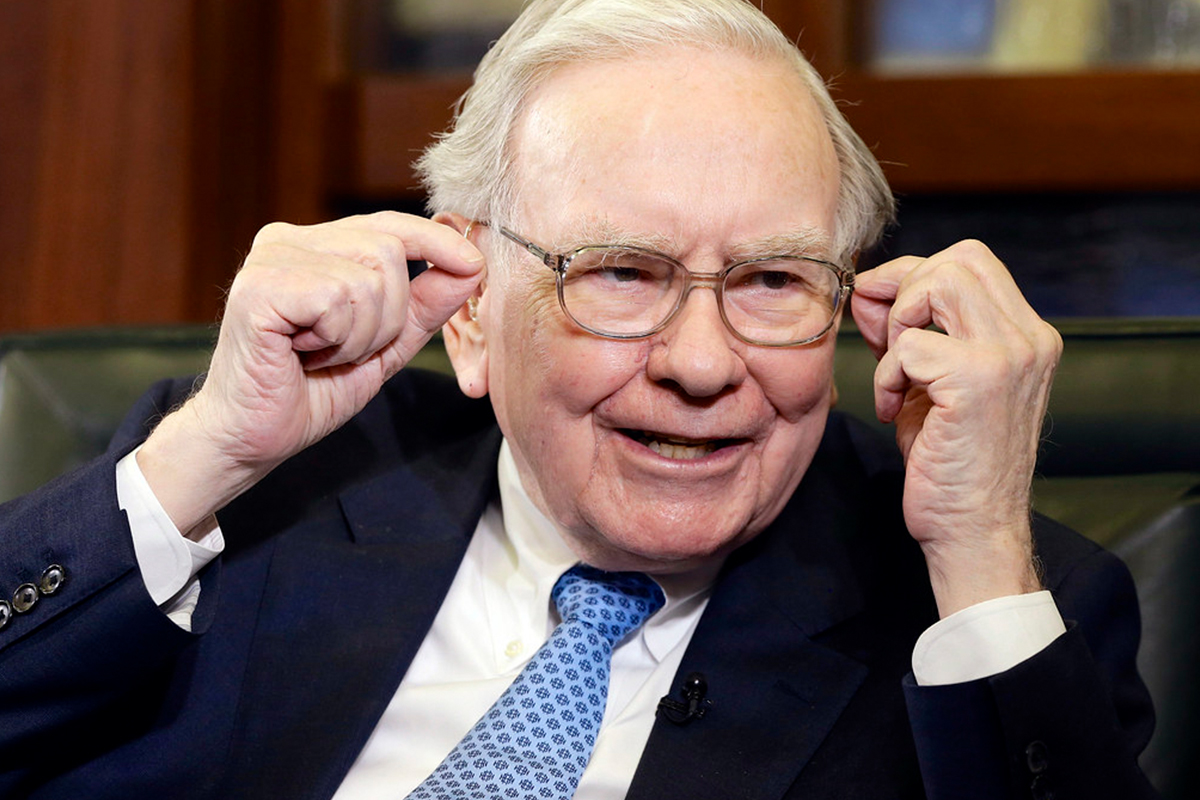Berkshire pares huge Apple stake as cash, operating profit set records
Berkshire Hathaway significantly reduced its enormous stake in Apple in the first quarter, as Warren Buffett’s conglomerate let its cash hoard swell to a record $189 billion.
Buffett’s company also posted a record operating profit exceeding $11 billion, as its insurance operations benefited from improved underwriting and higher income from investments as interest rates rose.
The value of Berkshire’s stake in Apple fell 22 per cent to $135.4 billion as of March 31 from $174.3 billion at the end of 2023, even though the iPhone maker’s share price fell just 11 per cent in the quarter.
Based on changes in Apple’s stock price, Berkshire appears to have sold about 115 million shares, or 13 per cent of its holdings, in the quarter, ending with about 790 million.
A large sale is an about-face for Buffett, who is normally tech-phobic but came to view Apple as a consumer goods company with strong pricing power and devoted customers.
Some investors, however, have expressed concern that Apple consumed too much of Berkshire’s investment portfolio.
But the sales leave Buffett with more than six times the minimum $30 billion cash cushion he has pledged to keep.
At Berkshire’s annual meeting on Saturday, Buffett assured shareholders that “unless something dramatic happens that really changes capital allocation, we will have Apple as our largest investment.”
He also said “I don’t mind” expanding the cash stake, in light of alternatives in the equity markets and conflicts around the world, and said cash could top $200 billion by the end of June.
The Apple sales resulted in Berkshire’s realizing $11.2 billion of after-tax gains in the quarter from selling investments. Buffett maintained that he doesn’t mind paying taxes.
First-quarter operating profit rose 39 per cent to $11.22 billion, or about $7,807 per Class A share, from $8.07 billion a year earlier.
“Berkshire continues to benefit from attractive yields on short-term investments and large cash balances”.
Net income fell 64 per cent to $12.7 billion, or $8,838 per share, from $35.5 billion a year earlier, when Berkshire had large unrealized gains from its stocks.
An accounting rule requires Berkshire to report those gains with its financial results. Buffett urges investors to ignore the resulting volatility.
Berkshire also repurchased $2.6 billion of its own stock in the first quarter, and a small amount in the first three weeks of April.
Buffett, 93, has led Berkshire since 1965, transforming it from a struggling textile company into a conglomerate whose dozens of businesses including Geico, the BNSF railroad, Berkshire Hathaway Energy, and Dairy Queen and See’s Candies.
The diversification has led many investors, not just Buffett fans, to view Berkshire as a stable long-term investment even amid recession fears and concerns about the banking industry.
Insurance profit soared 80 per cent to $5.2 billion. This included a more than doubling of underwriting profit at Geico, which benefited from rate increases and a large decline in the percentage of premiums it used to pay for accident losses.
Profit fell 8 per cent at the BNSF railroad, in part because of lower fuel surcharges and an “unfavorable business mix.”
Berkshire Hathaway Energy saw profit rise 72 per cent, as improved operating performance from utilities helped offset rising legal costs at the HomeServices of America real estate brokerage related to legal settlements over brokerage commissions.
The energy business still faces billions of dollars in claims against its PacifiCorp unit over Oregon wildfires in 2020.





